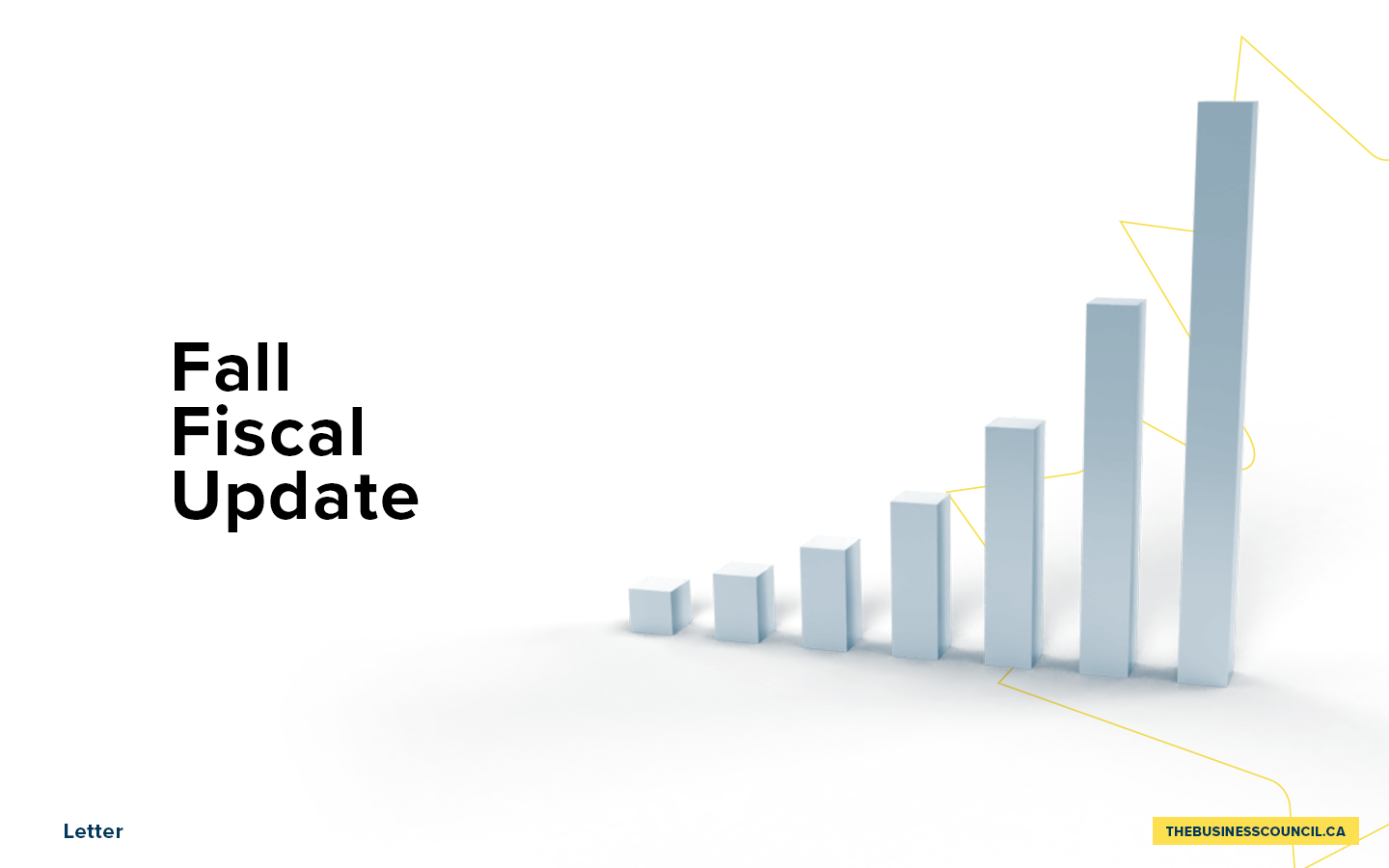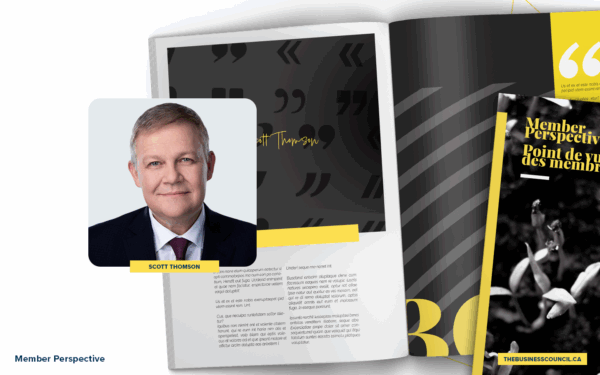Taking concrete actions to build a better future
In a letter to Deputy Prime Minister and Finance Minister Chrystia Freeland ahead of the Fall Fiscal and Economic Update, Goldy Hyder identifies three areas for action.
Dear Deputy Prime Minister,
Congratulations on your address last week to the Brookings Institution, which eloquently made the case for stronger economic ties among liberal democracies as a counterweight to authoritarian regimes. Your remarks made it clear we must do more than talk – Canada must take concrete action to support those who share our political and moral values.
In your speech, you promised that the federal government will fast-track “the energy and mining projects our allies need to heat their homes and to manufacture electric vehicles.” Canada’s business leaders welcome this commitment and stand ready to invest the significant sums it will take to deliver on it. Canadians must demonstrate to the world that we can successfully complete major projects and build the infrastructure that is required to access global markets.
For major projects to go ahead, however, investors need regulatory predictability and a clear understanding of the “rules of the road.” To that end, I urge you to include in the Fall Economic Statement an unambiguous declaration of government policy in this area and the specific measures you and your Cabinet colleagues will take to support it. This would send an important and much-needed signal to investors, international allies, and project proponents. It would also provide the clarity companies need to support the multi-billion-dollar investments that will put Canada on track to meeting its climate commitments.
Such a declaration should spell out in detail the kinds of projects the government is prepared to fast-track and the expedited review processes to which they will be subjected. It should also outline any incentives – financial or otherwise – which the government will put in place in response to those contained in the United States’ Inflation Reduction Act. Absent these details it would be impossible for Canadian business leaders to make informed investment decisions.
In separate remarks in Canada yesterday, you highlighted two other areas which business leaders hope to hear more about in the upcoming Fall Economic Statement: fiscal prudence and economic immigration.
Fiscal prudence
You and your colleagues have made welcome progress toward reducing the federal deficit and debt-to-GDP ratio. Last week’s report from the Parliamentary Budget Officer (PBO) forecasts a deficit equal to 0.9% of GDP in 2022-23 compared to 3.9% in 2021-22, assuming status quo policy.
At the same time, Parliamentarians and all Canadians must recognize the degree to which higher interest rates are driving up the cost of servicing the $1.4 trillion federal debt. According to the PBO, public debt charges are projected to more than double from their 2020-21 level, reaching $47.6 billion in 2027-28. A deep and/or prolonged recession could easily drive this number much higher, with seriously negative consequences for the fiscal framework. Even more reason, then, to resist the pressure for significant new spending programs and stay firmly focussed on the goal of overall deficit reduction.
As you rightly noted in your remarks yesterday, unnecessary government spending at this time would be tantamount to pouring oil on the inflationary fire.
Increased economic immigration
As you pointed out yesterday, Canada needs to welcome more immigrants with the skills and knowledge businesses need. Last week I wrote to the Minister of Immigration, Refugees and Citizenship to underscore the importance of immigration in alleviating Canada’s extremely tight labour market, which is acting as a drag on economic growth.
In a recent survey of the country’s leading employers, 80% reported having difficulty finding the skilled workers they need to grow and compete globally. As a result of these shortages, 67% had canceled or delayed major projects. Some 30% were forced to relocate work outside of Canada. With an aging workforce and a declining labour participation rate, Canada’s future prosperity depends on further increases to the annual number of economic-class applicants who are granted permanent resident status.
For that reason, we are proposing that the 2023-2025 immigration levels plan adopt an annual admission target equal to 1.2% of Canada’s population, with 65% of new permanent residents entering the country under an economic class program. In support of this goal, we recommend that the Fall Economic Statement provide additional funding to rapidly modernize immigration IT systems, open new processing centres, and increase the ranks of border agents and settlement services personnel.
In closing, Deputy Prime Minister, I can assure you that the members of the Business Council are committed to working with you and all Parliamentarians in building a better future for all Canadians. Thank you for your service to the country.
Sincerely,

Goldy Hyder











